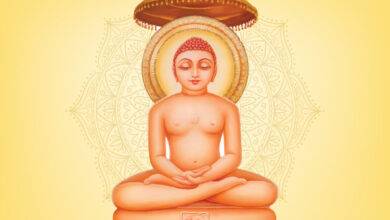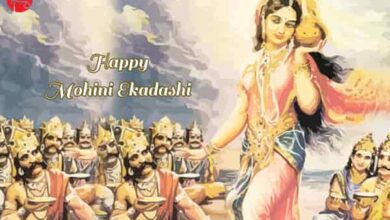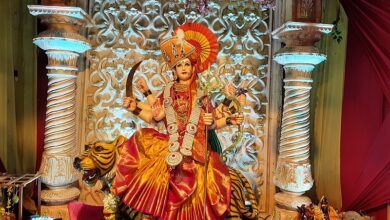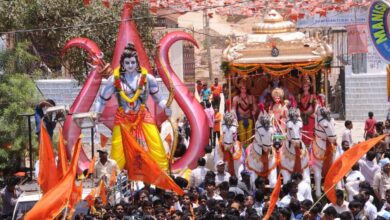Naba Barsha Celebration in India – Traditions, Food, and Festivities
Celebrate the Bengali New Year with Naba Barsha, a traditional festival filled with vibrant music, dance, and delicious food. Join in the festivities and learn more about the customs and rituals of this joyous occasion.
Quick Facts:
Date: 14th or 15th of April
Main Components: Main Components: Celebration, cultural events, and traditional rituals.
Popularity: Naba Barsha is a popular traditional New Year celebration in the Nepali community.
Pairings: Naba Barsha is a traditional festival celebrated in Nepal and India to mark the beginning of the new year.
Variations: Nababarsha, Pohela Boishakh, Bengali New Year, Vaisakhi – different names for the same spring festival celebrated in South Asia.
What is Naba Barsha?
Naba Barsha, also known as Pohela Boishakh, is the traditional Bengali New Year celebrated in Bangladesh and the Indian state of West Bengal. It marks the beginning of the Bengali calendar and is a time for festivities, cultural events, and feasting. People dress in traditional attire, participate in colorful processions, and enjoy music and dance performances. Naba Barsha is a time for renewal and new beginnings, and it is celebrated with great enthusiasm and joy by Bengali communities around the world. It is a time to come together with family and friends to celebrate the rich cultural heritage of the Bengali people.
History and significance of Naba Barsha
Naba Barsha, also known as Pohela Boishakh, is the Bengali New Year celebrated in Bangladesh and the Indian state of West Bengal. It marks the beginning of the Bengali calendar and is a time of great cultural significance, with colorful processions, traditional music and dance, and delicious food. Families and friends come together to celebrate the new year, exchange gifts, and wish each other prosperity and happiness.
The history of Naba Barsha dates back to the Mughal era when Emperor Akbar introduced the Gregorian calendar in Bengal. However, the traditional Bengali calendar continued to be used for agricultural and cultural purposes, and the celebration of Naba Barsha has been passed down through generations as a symbol of Bengali identity and heritage. Today, it is a time of joy and renewal, as people come together to embrace the new year and all the possibilities it holds.
Traditions and customs of Naba Barsha
Naba Barsha, also known as Pohela Boishakh, is the traditional Bengali New Year celebrated in Bangladesh and the Indian state of West Bengal. It is a time for new beginnings, with people cleaning their homes, wearing new clothes, and exchanging sweets and gifts. The day is marked with cultural programs, fairs, and parades, where people come together to celebrate the rich traditions and customs of their culture.
One of the key customs of Naba Barsha is the traditional meal of panta bhat and ilish bhapa, which is a fermented rice dish and steamed hilsa fish. People also visit temples and offer prayers for prosperity and good fortune in the coming year. The day is filled with joy and excitement as people gather with their loved ones to celebrate the arrival of the new year.
Celebrations and festivities during Naba Barsha
Naba Barsha, also known as Pohela Boishakh, is the Bengali New Year and is celebrated with great enthusiasm and joy. People dress in traditional attire, participate in cultural events, and enjoy delicious food. It is a time for families and friends to come together to welcome the new year, exchange gifts, and wish each other prosperity and happiness.
During Naba Barsha, streets are filled with colorful processions, music, and dance performances. People decorate their homes with colorful rangoli designs and visit temples and fairs to seek blessings for the coming year. The festive atmosphere creates a sense of unity and solidarity among the community, making Naba Barsha a time of togetherness and joy.
Naba Barsha food and cuisine
Naba Barsha, also known as Pohela Boishakh, is the Bengali New Year and is celebrated with a variety of traditional foods and cuisine. Popular dishes include panta bhat (fermented rice), ilish maach (hilsa fish), and pitha (rice cakes). These dishes are often enjoyed with family and friends during the festive celebrations.
The Naba Barsha food and cuisine reflect the rich cultural heritage of Bengal and are an integral part of the New Year festivities. The traditional recipes and flavors are passed down through generations, and the celebration of Naba Barsha is incomplete without the delicious and aromatic dishes that are enjoyed during this time.
Naba Barsha decorations and symbols
Naba Barsha, also known as Pohela Boishakh, is the Bengali New Year celebrated with colorful decorations and traditional symbols. People decorate their homes and streets with alpana, intricate rice flour designs, and colorful rangolis. The symbols of Naba Barsha include the mangal ghot, a pitcher filled with holy water, and the noboborsho kantha, a special embroidered cloth used in rituals and celebrations.
The decorations and symbols of Naba Barsha reflect the joy and optimism of the new year, with vibrant colors and intricate designs bringing a sense of renewal and prosperity to the celebrations. The traditional symbols are not just for adornment, but also hold cultural and religious significance, connecting people to their heritage and bringing communities together in celebration.
Naba Barsha rituals and religious practices
Naba Barsha, also known as Pohela Boishakh, is the Bengali New Year celebrated in the Indian states of West Bengal and Assam, as well as in Bangladesh. The day is marked by various rituals and religious practices, including cleaning and decorating homes, offering prayers at temples, and seeking blessings from elders. People also exchange sweets and gifts, and participate in cultural events and fairs to welcome the new year with joy and enthusiasm.
One of the key rituals of Naba Barsha is the traditional bath in the early morning, followed by wearing new clothes and offering puja to the deities. It is believed that these practices bring prosperity and good fortune for the coming year. Additionally, people visit fairs, enjoy traditional Bengali cuisine, and partake in cultural performances to celebrate the occasion with their loved ones.
Cultural significance of Naba Barsha
Naba Barsha, also known as Pohela Boishakh, holds great cultural significance in Bangladeshi and Bengali communities. It marks the beginning of the Bengali New Year and is celebrated with colorful processions, traditional food, music, and dance. People dress in traditional attire and participate in various cultural events to welcome the new year with joy and enthusiasm.
Naba Barsha is not only a time for celebration, but also a time for reflection and renewal. It is a day to seek blessings from elders, visit relatives and friends, and start the year with positivity and good wishes. The cultural significance of Naba Barsha is deeply rooted in the history and traditions of the Bengali community, making it a cherished and important festival.
Naba Barsha in different regions and communities
Naba Barsha, also known as Pohela Boishakh, is celebrated in various regions and communities with unique traditions and customs. In Bangladesh, it is a national holiday marked by colorful processions, traditional music and dance, and delicious feasts. In West Bengal, India, Naba Barsha is celebrated with grand fairs, cultural events, and the exchange of sweets and gifts among friends and family. The diversity of celebrations reflects the rich cultural significance of Naba Barsha in different regions and communities.
Modern adaptations and changes in Naba Barsha celebrations
In recent years, the traditional Naba Barsha celebrations in Bengal have seen modern adaptations and changes. While the core rituals and customs remain the same, there has been a shift towards incorporating technology and social media into the festivities. From virtual gatherings and online shopping for traditional attire to digital invitations and live streaming of cultural performances, the Naba Barsha celebrations have embraced the digital age.
Additionally, there has been a growing emphasis on sustainability and eco-friendly practices during the Naba Barsha celebrations. Many communities are now opting for organic and locally sourced materials for decorations, as well as promoting eco-friendly practices such as tree planting and waste reduction. These changes reflect a desire to preserve the traditions of Naba Barsha while also adapting to the needs and concerns of the modern world.
Hidden Facts
1. Naba Barsha is a traditional New Year celebration in the Bengali culture, typically celebrated in mid-April.
2. The festival is known for its colorful decorations, traditional music, and elaborate feasts.
3. It is a time for families to come together and celebrate the beginning of the new year.
4. Naba Barsha is also known as Pohela Boishakh in Bangladesh and is celebrated with great enthusiasm and joy.
5. The festival marks the end of the harvest season and the beginning of the new agricultural year.
6. Naba Barsha is a time for people to seek blessings for prosperity and happiness in the coming year.
Top 10 Best Wishes For Naba Barsha
1. #HappyNabaBarsha – Wishing everyone a joyful and prosperous Naba Barsha!
2. #NewBeginnings – May this Naba Barsha bring new opportunities and success to all.
3. #FamilyTime – Wishing for quality time with loved ones during Naba Barsha celebrations.
4. #HealthandHappiness – May everyone be blessed with good health and happiness in the new year.
5. #Prosperity – Wishing for financial success and abundance in the coming year.
6. #PeaceandLove – Hoping for a year filled with peace and love for all.
7. #TraditionalCelebrations – Wishing for vibrant and colorful Naba Barsha festivities.
8. #Blessings – May this Naba Barsha be filled with blessings for everyone.
9. #JoyfulMoments – Wishing for plenty of laughter and joy in the new year.
10. #HarvestSeason – Hoping for a bountiful harvest and agricultural prosperity in Naba Barsha.
Top 10 Best Messages For Naba Barsha
1. Wishing everyone a happy and prosperous #NabaBarsha! May this new year bring joy and happiness to all.
2. Let’s celebrate the Bengali New Year with love, laughter, and lots of good food! #NabaBarsha #BengaliNewYear
3. Happy #NabaBarsha to all my Bengali friends and family! May this year be filled with peace and prosperity.
4. As we welcome the new year, let’s cherish the old memories and create new ones. #NabaBarsha
5. It’s time to embrace new beginnings and celebrate the beauty of #NabaBarsha! Wishing everyone a wonderful new year.
6. May the sound of dhak and the aroma of pitha fill your homes with joy this #NabaBarsha. Happy Bengali New Year!
7. Let’s spread love and happiness as we welcome the new year. #NabaBarsha #NewBeginnings
8. Wishing everyone a year filled with love, laughter, and success. Happy #NabaBarsha!
9. May this #NabaBarsha bring peace and prosperity to all. Happy Bengali New Year!
10. Let’s celebrate the spirit of togetherness and unity as we welcome #NabaBarsha. Wishing everyone a joyous new year!
Top 10 Best Quotes For Naba Barsha
1. “May the new year bring you joy, peace, and prosperity. Happy Naba Barsha!”
2. “As the Naba Barsha begins, let us embrace new beginnings and fresh starts.”
3. “Wishing you a Naba Barsha filled with love, laughter, and good fortune.”
4. “Let us welcome the Naba Barsha with open hearts and hopeful spirits.”
5. “May the Naba Barsha bring you success and happiness in all your endeavors.”
6. “Embrace the Naba Barsha with gratitude and positivity for the year ahead.”
7. “May the Naba Barsha bring new opportunities and blessings into your life.”
8. “Wishing you a Naba Barsha filled with prosperity and abundance.”
9. “Welcome the Naba Barsha with open arms and a renewed sense of hope.”
10. “May the Naba Barsha be a time of renewal and growth for you and your loved ones.”



